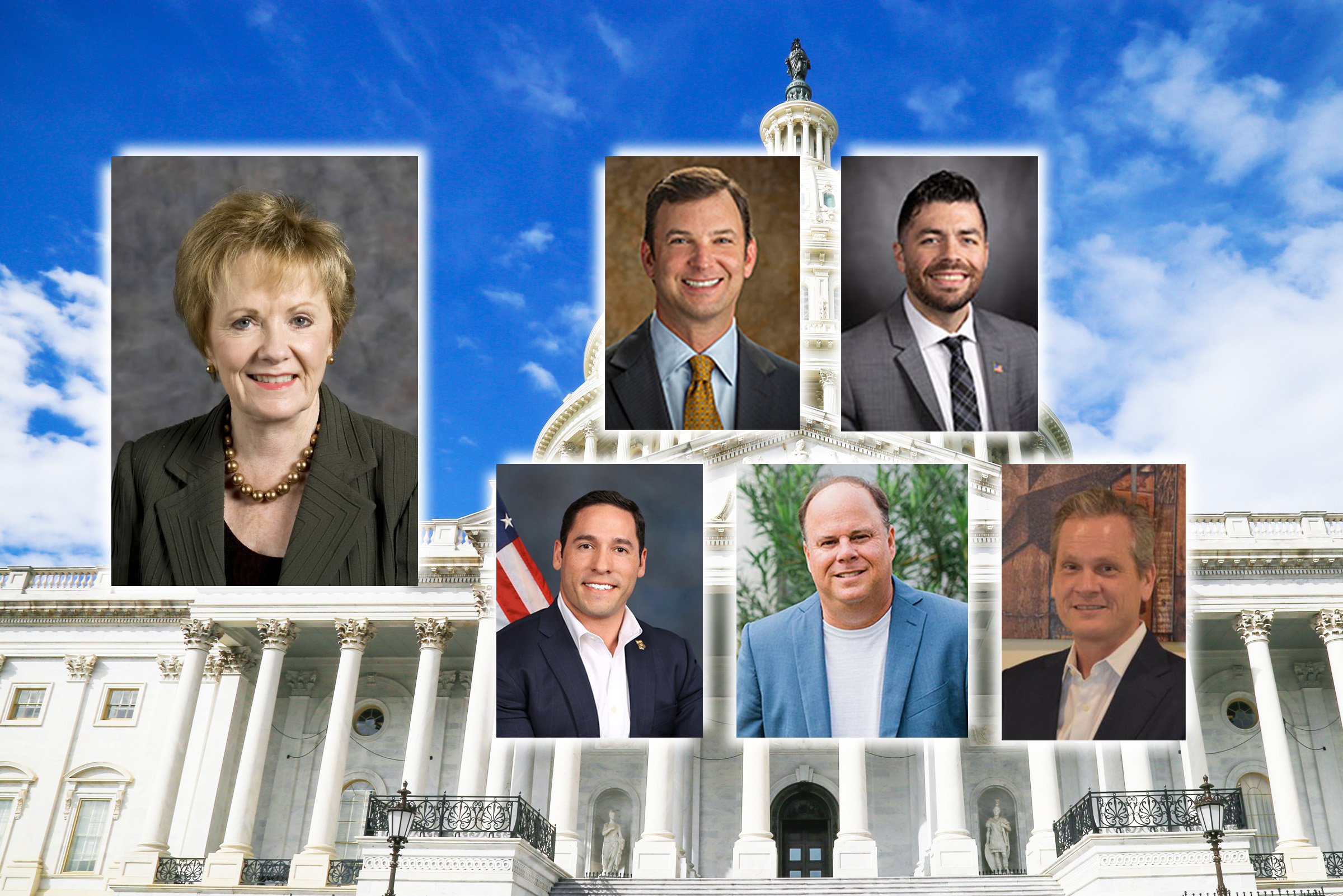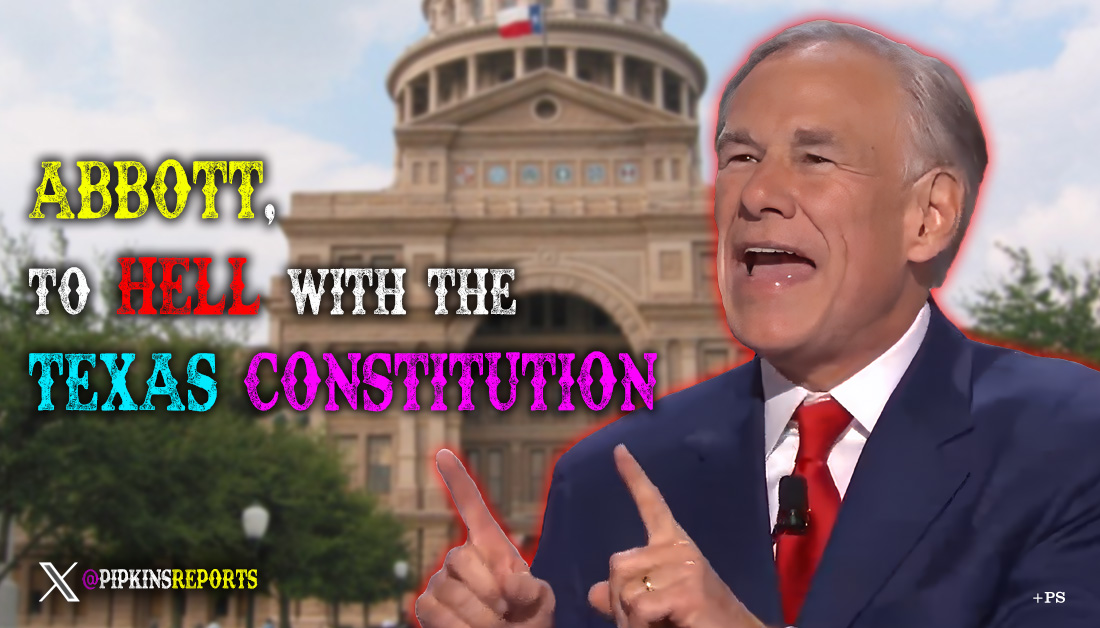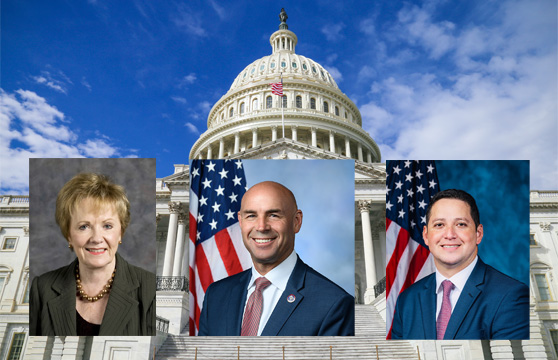Election
The Race to Replace U.S. Rep. Kay Granger

Who Will Step Up for Texas’ 12th Congressional District?
As the retirement of U.S. Rep. Kay Granger, a Republican from Fort Worth, draws near, the political landscape in Texas’ 12th Congressional District is heating up. With filing for elections beginning on November 11 and ending on December 11, and the primary scheduled for March 5, the race to succeed Granger is rapidly taking shape. Granger’s announcement not to seek reelection has set the stage for what promises to be a highly competitive and closely-watched contest.
Texas’ 12th Congressional District is a deeply conservative stronghold, where former President Donald Trump won by a resounding 18 percentage points in 2020. The competition to fill this vacant seat is expected to attract significant attention and a considerable amount of campaign funding.
One of the prominent Republicans being considered as a contender for Granger’s seat is State Rep. Craig Goldman, representing Fort Worth. Goldman has taken steps indicating his interest in the race, including the purchase of campaign websites, as reported by The Texas Tribune. With $707,120 in campaign funds, he is well-positioned to make a run for the seat. Goldman stated, “As far as my political plans go, I’m honored and humbled by all who have reached out and will have a decision made very soon.”
Another potential candidate, State Rep. Nate Schatzline, from Fort Worth, has not confirmed or denied his intentions to run. He is currently focusing on the ongoing special session, keeping his options open. Schatzline anticipates that a multitude of Republicans will join the primary race in this safe Republican district.
James Riddlesperger, a political science professor at Texas Christian University, highlights the rarity of this open race for the 12th Congressional District. Only five individuals have represented the district since 1919, and the competition is expected to be fierce.
One Republican who has already declared his candidacy is John O’Shea, who has been running for Granger’s seat since April. O’Shea welcomes the likely entry of Goldman into the race, emphasizing that those who waited until this moment may be perceived as political opportunists. O’Shea’s strong connection with Texas Attorney General Ken Paxton could make this primary contest even more intriguing.
Chris Putnam, the former mayor pro tem of Colleyville, who previously challenged Granger in a Republican primary, is also considering another run. He understands the importance of financial backing in a congressional race and is keen on seeing which candidates garner support from major funders.
Fundraising is expected to be a significant challenge for any candidate entering the race, with estimates suggesting the primary could require at least $1 million. Consequently, candidates will need to quickly secure adequate resources to challenge contenders with name recognition and existing political influence.
Additionally, there’s interest in whether Granger’s seat will experience the same rightward shift that has been observed in local offices in Tarrant County in recent years. County Judge Tim O’Hare’s victory in the primaries, as a conservative candidate, over a more moderate Republican, serves as an example of this trend.
Tarrant County Commissioner Manny Ramirez, who recently took office, is considering a run and believes that the district needs new conservative leadership. If he decides to enter the race, his entry could shake up the competition, considering his representation of many of the same constituents in northwest Tarrant County as Granger.
As the field of potential candidates continues to grow, Tarrant County GOP Chairman Bo French underscores the importance of electing a strong conservative who is committed to challenging the Washington establishment. The race to fill Granger’s seat is poised to become a multi-million-dollar primary and runoff contest, with significant outside interests likely to play a role.
With Granger’s retirement creating an unprecedented opportunity for new faces in the 12th Congressional District of Texas, we can expect more candidates to emerge in the coming weeks. As this critical race develops, the eyes of the nation will undoubtedly be on North Texas, watching the competition for one of the Lone Star State’s most significant congressional seats.
Election
Texans to Vote on 17 Constitutional Amendments, with Historic Homestead Exemption in Spotlight

AUSTIN, TX — On November 4, Texas voters will face a marathon ballot featuring 17 proposed amendments to the state’s constitution, a document that has seen over 500 revisions since 1876. Secretary of State Jane Nelson, who oversaw the ballot order draw, urged Texans to seize this chance to “make your voice heard about the governing document of our state.” From tax relief to judicial reform, these propositions reflect a conservative vision of limited government, economic liberty, and state sovereignty. But one measure, Proposition 13, stands out as a landmark effort to deliver substantial property tax relief to homeowners—a cornerstone issue for Texans grappling with rising costs in a state without an income tax.
Proposition 13: A Game-Changer for Homeowners
At the heart of this constitutional lineup is Proposition 13 (SJR 2), which would raise the homestead exemption for school district property taxes from $100,000 to $140,000, with an even higher $150,000 exemption for seniors and disabled homeowners. Paired with a tax rate compression in Senate Bill 1, this measure promises an average savings of $496.57 for homeowners, according to Sen. Paul Bettencourt (R-Houston), the bill’s author. In a unanimous vote, the Texas Senate signaled its commitment to easing the property tax burden, a perennial concern for Texans facing skyrocketing appraisals.
For many, Proposition 13 is a lifeline. Bettencourt noted that 80 to 90% of Texas seniors could pay zero school district property taxes under this plan, as would average homeowners in 49% of Texas school districts where home values fall below $140,000. This is no small feat in a state where property taxes fund much of public education. To address concerns about local revenue losses, Bettencourt emphasized that the state would reimburse school districts, ensuring they remain fully funded. “Today, the Texas Senate delivered a win for homeowners statewide,” he declared, framing the measure as a victory for taxpayers without sacrificing educational quality.
Yet, some lawmakers raised red flags during Senate debates, warning that local taxing entities—cities, counties, and special districts—might offset these savings by raising their own rates. This tension underscores a broader challenge: balancing tax relief with the fiscal needs of local governments. For constitutional conservatives, Proposition 13 embodies the principle that government should prioritize returning money to citizens, but voters must weigh whether the state’s reimbursement plan can prevent local tax hikes that could erode the promised relief.
A Broader Conservative Agenda
While Proposition 13 takes center stage, the remaining 16 amendments advance a robust conservative agenda. Proposition 2 (SJR 18) bans taxes on capital gains—realized or unrealized—protecting wealth creation from state overreach. Proposition 6 (HJR 4) shields securities transactions from occupational or transactional taxes, bolstering financial markets. Proposition 8 (HJR 2) prohibits death taxes on estates or inheritances, ensuring families keep more of their legacy.
Other tax relief measures include Proposition 5 (HJR 99), exempting animal feed held for retail from ad valorem taxes, and Proposition 9 (HJR 1), which extends similar exemptions to income-producing personal property. Proposition 7 (HJR 133) offers tax breaks for surviving spouses of veterans with presumed service-connected conditions, while Proposition 10 (SJR 84) provides temporary exemptions for homestead improvements destroyed by fire. Proposition 11 (SJR 85) further boosts exemptions for elderly and disabled homeowners, complementing Proposition 13’s focus on homestead relief.
Infrastructure and education also feature prominently. Proposition 1 (SJR 59) creates a permanent fund for the Texas State Technical College System, supporting trade programs vital to Texas’ economy. Proposition 4 (HJR 7) dedicates sales tax revenue to the Texas Water Fund, addressing water scarcity in a growing state. Proposition 14 (SJR 3) establishes a $3 billion Dementia Prevention and Research Institute, though its hefty price tag raises questions about fiscal priorities.
Safety, Sovereignty, and Civic Values
Public safety and border security are addressed in Proposition 3 (SJR 5), which mandates bail denial for certain felony offenses, and Proposition 17 (HJR 34), which offers tax exemptions for border security infrastructure in counties along the U.S.-Mexico border. Both align with conservative priorities of law and order and state sovereignty, though the latter’s vague definition of “infrastructure” warrants scrutiny.
Cultural and civic concerns shine through in Proposition 15 (SJR 34), affirming parents as the primary decision-makers for their children—a rebuke to institutional overreach in schools and healthcare. Proposition 16 (SJR 37) clarifies that only U.S. citizens may vote, reinforcing election integrity amid national debates. Proposition 12 (SJR 27) reforms the State Commission on Judicial Conduct, enhancing accountability for judicial misconduct, a move conservatives will welcome as a check on judicial power.
With early voting from October 20-31 and a registration deadline of October 6, Texans must act swiftly to study these amendments. Detailed information is available at VoteTexas.gov. Proposition 13, with its promise of historic tax relief, may dominate headlines, but the full slate demands careful consideration. Each amendment shapes the delicate balance between individual liberty and public needs, a balance constitutional conservatives hold dear.
As Texas voters head to the polls, they carry the weight of self-governance. In a state fiercely proud of its independence, this election is a chance to reaffirm principles of limited government and personal freedom—nowhere more so than in Proposition 13, which could redefine the financial burdens of homeownership for millions. The question is whether Texans will embrace this vision or demand greater clarity on its long-term impacts.
Election
Abbott’s Backroom Play: How Greg Abbott Used a Legal Loophole to Install Kelly Hancock as Texas Comptroller Without Senate Confirmation

In a calculated maneuver that has sent shockwaves through grassroots conservative circles, Texas Governor Greg Abbott has bypassed the standard legislative confirmation process to install outgoing State Senator Kelly Hancock into the role of Texas Comptroller—without the public scrutiny, vetting, or constitutional confirmation typically required by law.
The move, which critics are calling a “legal sleight of hand” and a “raw power grab,” appears designed to give Hancock the advantage of incumbency ahead of the 2026 Republican primary, where he’ll face two formidable, independently-minded opponents: former State Senator Don Huffines and current Railroad Commissioner Christi Craddick.
But beyond its political implications, the scheme raises deeper questions about rule of law, the erosion of constitutional norms in Texas governance, and whether voters are being force-fed another establishment pick wrapped in a bow of bureaucratic trickery.
The Setup: Avoid the Constitution, Install a Loyalist
On June 19, Hancock formally resigned from the Texas Senate and was immediately sworn in—not as Comptroller—but as “chief clerk” of the Comptroller’s office by outgoing Comptroller Glenn Hegar. That title, while bureaucratically bland, comes with sweeping authority over the agency’s operations for the remainder of Hegar’s term, which runs through January 2027.
Hegar, who is leaving to become chancellor of the Texas A&M University System on July 1, heaped praise on Hancock and handed him the reins with the enthusiastic blessing of Abbott.
But here’s the catch: Abbott didn’t appoint Hancock as Comptroller—a move that would have triggered mandatory Senate confirmation under Texas law. Instead, Hancock’s insertion as “chief clerk” is a workaround—a newly invented interim title designed to give him all the power of the office, with none of the accountability.
The workaround skirts a 2002 legal opinion written by none other than then-Attorney General Greg Abbott himself. That opinion declared that a sitting legislator cannot be appointed to a position requiring Senate confirmation during the term for which they were elected. Hancock’s resignation was intended to dodge that prohibition, yet critics say he still falls under constitutional limits due to Texas’ “holdover” clause—a provision that allows legislators to technically retain office until a successor is qualified.
In plain terms: Hancock may not be legally out of the Senate yet, and therefore not legally eligible to hold this new office either.
The Real Goal: An Unelected Incumbency
Why the rush to appoint a placeholder Comptroller for a year and a half? The answer is pure politics: incumbency.
Abbott and his allies understand the power of incumbency in statewide races. Name recognition, official letterhead, media exposure, and the implied authority of office all combine to give Hancock a serious leg up over his grassroots challengers. By installing him now, Abbott ensures that his preferred successor runs not as a candidate—but as the sitting Comptroller.
Hancock wasted no time launching his campaign. Within hours of his swearing-in, he rolled out a slick announcement touting his legislative experience, fiscal conservatism, and support for border security. But that very record is already drawing fire from conservatives, especially his vote to impeach Attorney General Ken Paxton and his siding with Democrats to dilute a ban on taxpayer-funded lobbying.
That record hasn’t gone unnoticed by primary voters, either.
Don Huffines: “They Fear You”
Former State Senator Don Huffines didn’t mince words in his response.
“The political elite are manipulating the system to install another go-along-to-get-along lap dog as State Comptroller,” Huffines said. “They don’t just fear me—they fear you, the taxpayers.”
Huffines, who has already earned endorsements from U.S. Sen. Ted Cruz, Ron Paul, and a majority of the State Republican Executive Committee, framed the maneuver as part of a broader establishment pattern of undermining grassroots efforts and insulating power among insiders.
“They know that true transparency, the kind I’ve promised, would expose everything,” he said.
Huffines’ campaign is already tapping into the anti-establishment fervor that helped fuel Trump’s rise. He paints Hancock not as a fighter for fiscal integrity, but as a symbol of cronyism and cowardice—a man who lacked the courage to earn the job honestly and instead snuck in through the back door.
Christi Craddick: “I’ve Done the Job”
Current Railroad Commissioner Christi Craddick, a no-nonsense fiscal hawk with actual statewide executive experience, also entered the race undeterred by Hancock’s sudden rise to power.
“I’m the only candidate in this race with statewide experience and a proven record,” she said. “While others play games, I deliver results.”
Craddick has run one of the most revenue-critical agencies in Texas—the Railroad Commission—overseeing billions in oil and gas revenues that fund schools, roads, and law enforcement. She’s pledging to bring that same results-driven approach to the Comptroller’s office.
“I trust the voters to see through political gimmicks. They know what leadership looks like,” she said.
Legal Questions Linger
Beyond the optics and political fallout, constitutional questions still loom. Article XVI, Section 40 of the Texas Constitution prohibits a legislator from being appointed or employed in a civil office during their elected term. The Abbott-Hancock team contends that Hancock’s resignation makes the restriction moot.
But constitutional scholars and conservative legal minds aren’t so sure.
Because Hancock’s replacement hasn’t yet been elected in a special election, he may technically still be “holding over” his Senate seat. That would render his new role unconstitutional—even if it comes with a carefully worded job title designed to muddy the waters.
“This is a clear violation of both the spirit and the letter of the Texas Constitution,” said one former legislative attorney who asked not to be named due to potential backlash. “It’s a loophole engineered for a political ally, and it disrespects the very laws these men swore to uphold.”
Abbott’s Real Message to Texans
Governor Abbott’s rapid endorsement of Hancock—along with his backhanded swipe at Don Huffines as a “candidate who already lost to a Democrat”—reveals much about the governor’s priorities. Abbott appears less interested in an open, transparent race for the state’s chief financial officer and more focused on installing a loyalist who will support his education agenda, including school choice and other spending priorities.
The entire operation has the feel of a political chess game, with Abbott moving pieces behind the curtain to ensure control, compliance, and consolidation of power.
To many observers, the stunt feels less like governance and more like a monarchy: appointments made in private, authority granted by favor, and the people kept safely at arm’s length.
What’s at Stake in March 2026
The 2026 Republican primary for Comptroller is now shaping up to be more than just a contest for a relatively obscure financial office. It’s becoming a litmus test for whether grassroots conservatives still have a say in Texas politics—or whether power brokers like Abbott will continue to manipulate the machinery to protect their allies and sideline principled insurgents.
Texans should pay close attention. If the Comptroller’s office can be quietly handed to a hand-picked insider without constitutional confirmation or public scrutiny, what’s next? Attorney General? Land Commissioner? Lieutenant Governor?
The Hancock appointment is more than a cynical political move. It’s a bellwether. And if Texas conservatives don’t push back hard, they may wake up in a state where elections are merely formalities and public offices are auctioned behind closed doors.
This is about who runs Texas: the people, or the political class.
And in March 2026, the people will have their say—if they’re paying attention.
Election
Texas House Divided: Rep. Dustin Burrows Defies GOP Caucus, Seeks Democrat Support for Speaker Role

GOP Divide Over House Speakership Intensifies
In a dramatic turn of events within the Texas House of Representatives, a showdown over the next Speaker has laid bare deep divisions within the Republican Party. Rep. Dustin Burrows, a close ally of outgoing Speaker Dade Phelan, broke ranks with the GOP caucus after failing to secure the Republican nomination. In an unprecedented move, Burrows aligned himself with Democrats, undermining the party’s choice of Rep. David Cook and igniting outrage among grassroots conservatives.
The Battle for Speaker of the House
On Saturday, the Texas House Republican Caucus met to select its nominee for Speaker, a critical position that sets the legislative agenda and controls committee appointments. The race came down to two contenders: Rep. David Cook, a staunch reformer who had publicly pledged to appoint only Republicans as committee chairs, and Rep. Dustin Burrows, a last-minute entrant who offered no commitments to conservative reforms.
Cook emerged victorious after three rounds of voting, with the final tally standing at 48-14 after 26 members loyal to Burrows walked out. This defection sparked a firestorm, as Burrows and his allies immediately began courting Democratic support in a bid to form a coalition that could challenge Cook on the House floor in January.
A Betrayal of Party Principles
The actions of Burrows and the defectors have drawn sharp condemnation from Republican grassroots activists and party leaders. The Republican Party of Texas (RPT) has long advocated for reforms to ensure Republican control over legislative priorities in a state where Democrats have often wielded disproportionate influence. In 2022, 81% of Republican primary voters supported a resolution requiring that only Republicans serve as committee chairs. Cook’s candidacy embodied this grassroots demand for reform, while Burrows’ maneuvering represents a continuation of the status quo.
The RPT Executive Committee issued a strong resolution following the caucus meeting, calling for unity behind Cook and warning that any member voting against the caucus nominee or supporting a secret ballot for Speaker would face censure. Such a censure could prevent them from running for reelection as Republicans.
The Dustin Burrows Record
Burrows’ record has long been a source of contention among conservatives. As Chairman of the powerful Calendars Committee under Speaker Phelan, Burrows held significant sway over which bills reached the House floor. Critics argue that this power was wielded to suppress conservative priorities.
During the COVID-19 pandemic, Burrows championed legislation that expanded the ability of local governments and businesses to enforce mask and vaccine mandates, a move that alienated many Republican voters. He also played a key role in blocking a bill that would have protected minors from irreversible gender-transition procedures, though a similar measure passed in a subsequent session.
More recently, Burrows was one of 61 Republicans who joined Democrats in voting to impeach Attorney General Ken Paxton, an act that further fueled skepticism about his conservative credentials. Burrows’ low rankings on conservative scorecards—73rd out of 86 Republicans in the Rice University rankings and a failing 48% grade from Texans for Fiscal Responsibility—underscore his tenuous relationship with the party’s grassroots base.
Grassroots Outrage and Calls to Action
The grassroots backlash to Burrows’ actions has been swift and fierce. Conservative activists argue that Burrows’ alliance with Democrats undermines the integrity of the Republican platform and disregards the will of GOP voters. They have mobilized to pressure representatives to support Cook on the House floor when the legislature convenes on January 14, 2025.
In an email to supporters, Rep. Andy Hopper detailed the events of the caucus meeting and urged constituents to hold their representatives accountable. Hopper emphasized that the caucus rules and the RPT platform explicitly require Republicans to unify behind the caucus nominee, particularly when that nominee is committed to advancing a conservative agenda.
A Pivotal Moment for Texas Republicans
The battle over the Speaker of the House has become a litmus test for the Republican Party’s commitment to conservative principles in Texas. Historically, Democrats have been granted significant influence in the state legislature, including committee chairmanships, despite their minority status. Cook’s victory in the caucus reflects a growing determination among Republicans to end this practice and ensure that legislative leadership reflects the will of the majority.
However, Burrows’ defection threatens to derail these efforts. By seeking Democratic support, he risks fracturing the party and empowering the opposition. The stakes are high: if Burrows and his coalition succeed, it could signal a return to the bipartisan power-sharing arrangements that have long frustrated conservatives.
Conclusion
The January 14 session will be a defining moment for the Texas House of Representatives and the Republican Party. Will Republicans rally behind their caucus nominee and seize the opportunity to implement meaningful reforms, or will divisions within the party allow Democrats to dictate the agenda once again?
As grassroots conservatives mobilize to demand accountability, all eyes will be on the Capitol. For Rep. Burrows and his supporters, the path forward may come with significant political consequences. For the Republican Party, this is a battle for its soul.
Here is the complete list of key representatives in the Texas House Speaker race, categorized by their positions on reform:
(List provided by Grassroots America. https://grassrootspriorities.com/phelan.php)
| Daniel Alders State Representative for Texas House District 6 Pro-Reform – Committed to Republican Cook for Speaker Facebook: @DanielAldersTX X: @danielalderstx |
| Trent Ashby State Representative for Texas House District 9 Pro-Reform – Committed to Republican Cook for Speaker Phone: 512-463-0508 Email: trent.ashby@house.texas.gov Facebook: @RepTrentAshby X: @TrentAshbyTX |
| Jeffrey Barry State Representative for Texas House District 29 Pro-Reform – Committed to Republican Cook for Speaker Facebook: @votejeffbarry X: @JeffBarryforTX |
| Cecil Bell State Representative for Texas House District 3 Pro-Reform – Committed to Republican Cook for Speaker Phone: 512-463-0650 Email: Cecil.Bell@house.texas.gov Facebook: @CecilBellJunior X: @CBellJr |
| Keith Bell State Representative for Texas House District 4 Anti-Reform – Siding wih Democrats and Burrows Phone: 512-463-0458 Email: keith.bell@house.texas.gov Facebook: @StateRepKeithBell |
| Greg Bonnen State Representative for Texas House District 24 Anti-Reform – Siding wih Democrats and Burrows Phone: 512-463-0729 Email: greg.bonnen@house.texas.gov Facebook: @DrGregBonnen X: @DrGregBonnen |
| Brad Buckley State Representative for Texas House District 54 Anti-Reform – Siding wih Democrats and Burrows Phone: 512-463-0684 Email: brad.buckley@house.texas.gov Facebook: @bradbuckleyfortexas X: @BradBuckleyDVM |
| Ben Bumgarner State Representative for Texas House District 63 Pro-Reform – Committed to Republican Cook for Speaker Phone: 512-463-0688 Email: ben.bumgarner@house.texas.gov Facebook: @BenBumgarnerforTexasRepHD63 X: @Bumgarner4HD63 |
| Dustin Burrows State Representative for Texas House District 83 Anti-Reform – Siding wih Democrats and Burrows Phone: 512-463-0542 Email: dustin.burrows@house.texas.gov Facebook: @Burrows4TX X: @Burrows4TX |
| Angie Button State Representative for Texas House District 112 Anti-Reform – Siding wih Democrats and Burrows Phone: 512-463-0486 Email: angie.button@house.texas.gov Facebook: @ACBforTexas X: @AngieChenButton |
| Briscoe Cain State Representative for Texas House District 128 Pro-Reform – Committed to Republican Cook for Speaker Phone: 512-463-0733 Email: briscoe.cain@house.texas.gov Facebook: @BriscoeCain X: @BriscoeCain |
| Gio Capriglione State Representative for Texas House District 98 Anti-Reform – Siding wih Democrats and Burrows Phone: 512-463-0690 Email: giovanni.capriglione@house.texas.gov Facebook: @VoteGiovanni X: @VoteGiovanni |
| David Cook State Representative for Texas House District 96 Pro-Reform – Committed to Republican Cook for Speaker Phone: 512-463-0374 Email: david.cook@house.texas.gov Facebook: @davidcookfortexas X: @DavidCookTexas |
| Tom Craddick State Representative for Texas House District 82 Pro-Reform – Committed to Republican Cook for Speaker Phone: 512-463-0500 Email: tom.craddick@house.texas.gov |
| Charles Cunningham State Representative for Texas House District 127 Unconfirmed Phone: 512-463-0520 Email: charles.cunningham@house.texas.gov Facebook: @CharlesCunninghamTX X: @CharlesTX127 |
| Pat Curry State Representative for Texas House District 56 Pro-Reform – Committed to Republican Cook for Speaker Facebook: @people/Pat-Curry-Republican-for-Texas-House/61551098733770/ |
| Drew Darby State Representative for Texas House District 72 Anti-Reform – Siding wih Democrats and Burrows Phone: 512-463-0331 Email: drew.darby@house.texas.gov Facebook: @DrewDarbyforTexas X: @DrewDarbyTX |
| Jay Dean State Representative for Texas House District 7 Anti-Reform – Siding wih Democrats and Burrows Phone: 512-463-0750 Email: jay.dean@house.texas.gov Facebook: @jaydeanfortexas |
| Mano DeAyala State Representative for Texas House District 133 Unconfirmed Phone: 512-463-0514 Email: mano.deayala@house.texas.gov Facebook: @manoforstaterep X: @ManoForStateRep |
| Mark Dorazio State Representative for Texas House District 122 Pro-Reform – Committed to Republican Cook for Speaker Phone: 512-463-0646 Email: mark.dorazio@house.texas.gov Facebook: @DorazioforTexas X: @DorazioforTexas |
| Paul Dyson State Representative for Texas House District 14 Pro-Reform – Committed to Republican Cook for Speaker Facebook: @PaulDysonTX X: @PaulDysonTX |
| Caroline Fairly State Representative for Texas House District 87 Pro-Reform – Committed to Republican Cook for Speaker Facebook: @fairlyfortexas X: @FairlyForTexas |
| James Frank State Representative for Texas House District 69 Pro-Reform – Committed to Republican Cook for Speaker Phone: 512-463-0534 Email: james.frank@house.texas.gov Facebook: @repjamesfrank X: @RepJamesFrank |
| Gary Gates State Representative for Texas House District 28 Anti-Reform – Siding wih Democrats and Burrows Phone: 512-463-0657 Email: gary.gates@house.texas.gov Facebook: @gatesfortexas X: @GatesforTexas |
| Stan Gerdes State Representative for Texas House District 17 Anti-Reform – Siding wih Democrats and Burrows Phone: 512-463-0682 Email: stan.gerdes@house.texas.gov Facebook: @stangerdesfortexashouse X: @StanGerdesforTX |
| Charlie Geren State Representative for Texas House District 99 Anti-Reform – Siding wih Democrats and Burrows Phone: 512-463-0610 Email: charlie.geren@house.texas.gov Facebook: @repcharliegeren X: @charliegeren |
| Ryan Guillen State Representative for Texas House District 31 Anti-Reform – Siding wih Democrats and Burrows Phone: 512-463-0416 Email: ryan.guillen@house.texas.gov Facebook: @representative.guillen X: @RyanGuillen |
| Sam Harless State Representative for Texas House District 126 Anti-Reform – Siding wih Democrats and Burrows Phone: 512-463-0496 Email: sam.harless@house.texas.gov Facebook: @samharless126 X: @SamHarless126 |
| Cody Harris State Representative for Texas House District 8 Anti-Reform – Siding wih Democrats and Burrows Phone: 512-463-0730 Email: cody.harris@house.texas.gov Facebook: @CodyforTexas X: @CodyforTexas |
| Caroline Harris Davila State Representative for Texas House District 52 Pro-Reform – Committed to Republican Cook for Speaker Phone: 512-463-0670 Email: caroline.harris@house.texas.gov Facebook: @CarolineHarrisForTexas X: @CarolineForTX |
| Brian Harrison State Representative for Texas House District 10 Pro-Reform – Committed to Republican Cook for Speaker Phone: 512-463-0516 Email: brian.harrison@house.texas.gov Facebook: @votebrianharrison X: @brianeharrison |
| Richard Hayes State Representative for Texas House District 57 Pro-Reform – Committed to Republican Cook for Speaker Phone: 512-463-0556 Email: richard.hayes@house.texas.gov |
| Cole Hefner State Representative for Texas House District 5 Anti-Reform – Siding wih Democrats and Burrows Phone: 512-463-0271 Email: cole.hefner@house.texas.gov Facebook: @votecolehefner X: @ColeHefnerTX |
| Hillary Hickland State Representative for Texas House District 55 Pro-Reform – Committed to Republican Cook for Speaker Facebook: @Hickland4TX X: @HicklandHillary |
| Janis Holt State Representative for Texas House District 18 Pro-Reform – Committed to Republican Cook for Speaker Facebook: @Holt4Texas X: @JanisHolt59 |
| Andy Hopper State Representative for Texas House District 64 Pro-Reform – Committed to Republican Cook for Speaker Facebook: @hopperfortexas X: @AndyHopperTX |
| Lacey Hull State Representative for Texas House District 138 Anti-Reform – Siding wih Democrats and Burrows Phone: 512-463-0727 Email: lacey.hull@house.texas.gov Facebook: @LaceyHullForTexas X: @LaceyHullTX |
| Todd Hunter State Representative for Texas House District 32 Anti-Reform – Siding wih Democrats and Burrows Phone: 512-463-0672 Email: todd.hunter@house.texas.gov Facebook: @todd.hunter.710 X: @Dist32StateRep |
| Carrie Isaac State Representative for Texas House District 73 Pro-Reform – Committed to Republican Cook for Speaker Phone: 512-463-0325 Email: carrie.isaac@house.texas.gov Facebook: @CarrieIsaacForTexas X: @CarrieIsaac |
| Helen Kerwin State Representative for Texas House District 58 Pro-Reform – Committed to Republican Cook for Speaker Facebook: @helenkerwin4tx X: @HelenKerwin4TX |
| Ken King State Representative for Texas House District 88 Anti-Reform – Siding wih Democrats and Burrows Phone: 512-463-0736 Email: ken.king@house.texas.gov Facebook: @KingForTexas X: @KingForTexas |
| Stan Kitzman State Representative for Texas House District 85 Anti-Reform – Siding wih Democrats and Burrows Phone: 512-463-0604 Email: stan.kitzman@house.texas.gov Facebook: @StanKitzmanTX X: @StanKitzmanTX |
| Marc LaHood State Representative for Texas House District 121 Pro-Reform – Committed to Republican Cook for Speaker Facebook: @MarcLaHoodCampaign X: @LaHood4Texas |
| Stan Lambert State Representative for Texas House District 71 Anti-Reform – Siding wih Democrats and Burrows Phone: 512-463-0718 Email: stan.lambert@house.texas.gov Facebook: @RepStanLambert X: @RepStanLambert |
| Brooks Landgraf State Representative for Texas House District 81 Anti-Reform – Siding wih Democrats and Burrows Phone: 512-463-0546 Email: brooks.landgraf@house.texas.gov Facebook: @BrooksLandgraf X: @BrooksLandgraf |
| Jeff Leach State Representative for Texas House District 67 Anti-Reform – Siding wih Democrats and Burrows Phone: 512-463-0544 Email: jeff.leach@house.texas.gov Facebook: @leachfortexas X: @leachfortexas |
| Mitch Little State Representative for Texas House District 65 Pro-Reform – Committed to Republican Cook for Speaker Facebook: @people/Mitch-Little-State-Rep-ELECT-HD-65/61552635488586/ X: @realmitchlittle |
| Janie Lopez State Representative for Texas House District 37 Unconfirmed Phone: 512-463-0640 Email: janie.lopez@house.texas.gov Facebook: @JanieLopezForTexas X: @JanieLopezForTX |
| AJ Louderback State Representative for Texas House District 30 Pro-Reform – Committed to Republican Cook for Speaker Facebook: @aj.louderback.1 X: @LouderbackAj |
| David Lowe State Representative for Texas House District 91 Pro-Reform – Committed to Republican Cook for Speaker Facebook: @DavidLowe4TX X: @DavidLowe4Texas |
| J. M. Lozano State Representative for Texas House District 43 Pro-Reform – Committed to Republican Cook for Speaker Phone: 512-463-0463 Email: jm.lozano@house.texas.gov Facebook: @RepJMLozano X: @RepJMLozano |
| John Lujan State Representative for Texas House District 118 Unconfirmed Phone: 512-463-0714 Email: john.lujan@house.texas.gov Facebook: @VoteLujan X: @LujanForTX |
| Shelley Luther State Representative for Texas House District 62 Pro-Reform – Committed to Republican Cook for Speaker Facebook: @shelleylutherHD62 X: @ShelleyLuther |
| Don McLaughlin State Representative for Texas House District 80 Pro-Reform – Committed to Republican Cook for Speaker Facebook: @donfortexas X: @donfortexas |
| John McQueeney State Representative for Texas House District 97 Anti-Reform – Siding wih Democrats and Burrows Facebook: @McQueeneyForTX X: @JohnMcQueeneyTX |
| Will Metcalf State Representative for Texas House District 16 Anti-Reform – Siding wih Democrats and Burrows Phone: 512-463-0726 Email: will.metcalf@house.texas.gov Facebook: @WillMetcalfTX X: @willmetcalfTX |
| Morgan Meyer State Representative for Texas House District 108 Anti-Reform – Siding wih Democrats and Burrows Phone: 512-463-0367 Email: morgan.meyer@house.texas.gov Facebook: @MorganMeyerForTexas X: @MorganMeyerTX |
| Brent Money State Representative for Texas House District 2 Pro-Reform – Committed to Republican Cook for Speaker Facebook: @brentmoneytx X: @BrentMoneyTX |
| Matt Morgan State Representative for Texas House District 26 Pro-Reform – Committed to Republican Cook for Speaker Facebook: @morganfortexas X: @morgan4texas |
| Candy Noble State Representative for Texas House District 89 Pro-Reform – Committed to Republican Cook for Speaker Phone: 512-463-0186 Email: candy.noble@house.texas.gov Facebook: @CandyNobleHD89 X: @CandyNobleHD89 |
| Michael Olcott State Representative for Texas House District 60 Pro-Reform – Committed to Republican Cook for Speaker Facebook: @votemikeolcott X: @olcott4texas |
| Tom Oliverson State Representative for Texas House District 130 Pro-Reform – Committed to Republican Cook for Speaker Phone: 512-463-0661 Email: tom.oliverson@house.texas.gov Facebook: @TomOliverson X: @TomOliverson |
| Angelia Orr State Representative for Texas House District 13 Anti-Reform – Siding wih Democrats and Burrows Phone: 512-463-0600 Email: angelia.orr@house.texas.gov Facebook: @AngeliaOrrForTX X: @AngeliaOrrForTX |
| Jared Patterson State Representative for Texas House District 106 Anti-Reform – Siding wih Democrats and Burrows Phone: 512-463-0694 Email: jared.patterson@house.texas.gov Facebook: @jpattersontx X: @JaredLPatterson |
| Dennis Paul State Representative for Texas House District 129 Pro-Reform – Committed to Republican Cook for Speaker Phone: 512-463-0734 Email: dennis.paul@house.texas.gov Facebook: @Dennis.Paul.HD129 X: @DennisPaul129 |
| Dade Phelan State Representative for Texas House District 21 Anti-Reform – Siding wih Democrats and Burrows Phone: 512-463-1000 Email: dade.phelan@speaker.texas.gov Facebook: @TexansForDade X: @DadePhelan |
| Katrina Pierson State Representative for Texas House District 33 Pro-Reform – Committed to Republican Cook for Speaker Facebook: @KatrinaForTexas X: @katrinapierson |
| Keresa Richardson State Representative for Texas House District 61 Pro-Reform – Committed to Republican Cook for Speaker Facebook: @keresafortexas X: @KeresaForTexas |
| Nate Schatzline State Representative for Texas House District 93 Pro-Reform – Committed to Republican Cook for Speaker Phone: 512-463-0562 Email: nate.schatzline@house.texas.gov Facebook: @NateforTexas X: @NateSchatzline |
| Mike Schofield State Representative for Texas House District 132 Pro-Reform – Committed to Republican Cook for Speaker Phone: 512-463-0528 Email: mike.schofield@house.texas.gov Facebook: @SchofieldForTexas X: @RepSchofield |
| Alan Schoolcraft State Representative for Texas House District 44 Pro-Reform – Committed to Republican Cook for Speaker Facebook: @SchoolcraftforTX X: @Schoolcraft4TX |
| Matt Shaheen State Representative for Texas House District 66 Pro-Reform – Committed to Republican Cook for Speaker Phone: 512-463-0594 Email: matt.shaheen@house.texas.gov Facebook: @MattShaheenTexas X: @MattShaheen |
| Joanne Shofner State Representative for Texas House District 11 Pro-Reform – Committed to Republican Cook for Speaker Facebook: @joannefortexans X: @joannefortexans |
| Shelby Slawson State Representative for Texas House District 59 Pro-Reform – Committed to Republican Cook for Speaker Phone: 512-463-0628 Email: shelby.slawson@house.texas.gov Facebook: @SlawsonForTexas X: @ShelbySlawson |
| John Smithee State Representative for Texas House District 86 Pro-Reform – Committed to Republican Cook for Speaker Phone: 512-463-0702 Email: john.smithee@house.texas.gov |
| David Spiller State Representative for Texas House District 68 Pro-Reform – Committed to Republican Cook for Speaker Phone: 512-463-0526 Email: david.spiller@house.texas.gov Facebook: @RepresentativeDavidSpiller X: @DavidSpillerTX |
| Valoree Swanson State Representative for Texas House District 150 Pro-Reform – Committed to Republican Cook for Speaker Phone: 512-463-0572 Email: valoree.swanson@house.texas.gov Facebook: @ValoreeSwansonforTexas X: @ValoreeforTexas |
| Carl Tepper State Representative for Texas House District 84 Anti-Reform – Siding wih Democrats and Burrows Phone: 512-463-0676 Email: carl.tepper@house.texas.gov Facebook: @CarlTepperForTexas X: @CarlTepper |
| Tony Tinderholt State Representative for Texas House District 94 Pro-Reform – Committed to Republican Cook for Speaker Phone: 512-463-0624 Email: tony.tinderholt@house.texas.gov Facebook: @tonytinderholtfortexas X: @reptinderholt |
| Steve Toth State Representative for Texas House District 15 Pro-Reform – Committed to Republican Cook for Speaker Phone: 512-463-0797 Email: steve.toth@house.texas.gov Facebook: @RepresentativeSteveToth X: @Toth_4_Texas |
| Ellen Troxclair State Representative for Texas House District 19 Pro-Reform – Committed to Republican Cook for Speaker Phone: 512-463-0490 Email: ellen.troxclair@house.texas.gov Facebook: @EllenTroxclair X: @EllenTroxclair |
| Gary VanDeaver State Representative for Texas House District 1 Anti-Reform – Siding wih Democrats and Burrows Phone: 512-463-0692 Email: gary.vandeaver@house.texas.gov Facebook: @GaryVanDeaverHD1 X: @GaryVanDeaver |
| Cody Vasut State Representative for Texas House District 25 Pro-Reform – Committed to Republican Cook for Speaker Phone: 512-463-0564 Email: cody.vasut@house.texas.gov Facebook: @votevasut X: @cvasut |
| Denise Villalobos State Representative for Texas House District 34 Anti-Reform – Siding wih Democrats and Burrows Facebook: @denise.etheridge.58 X: @DVillalobos20 |
| Wesley Virdell State Representative for Texas House District 53 Pro-Reform – Committed to Republican Cook for Speaker Facebook: @wesvirdellfortexas X: @wesvirdelltx |
| Trey Wharton State Representative for Texas House District 12 Pro-Reform – Committed to Republican Cook for Speaker Facebook: @profile.php?id=61553738502474 X: @WhartonForTexas |
| Terry Wilson State Representative for Texas House District 20 Anti-Reform – Siding wih Democrats and Burrows Phone: 512-463-0309 Email: terry.wilson@house.texas.gov Facebook: @TerryWilsonPage X: @TerryWilsonTX |
| Terri Leo Wilson State Representative for Texas House District 23 Pro-Reform – Committed to Republican Cook for Speaker Phone: 512-463-0502 Email: terri.leo-wilson@house.texas.gov Facebook: @TerriLeoWilson X: @TerriLeoWilson |
-

 Election1 week ago
Election1 week agoAbbott’s Backroom Play: How Greg Abbott Used a Legal Loophole to Install Kelly Hancock as Texas Comptroller Without Senate Confirmation
-

 Featured5 days ago
Featured5 days agoAbbott’s Veto of SB3 Saves Texas Hemp Industry, Sparks Battle Over Regulation
-

 Election2 days ago
Election2 days agoTexans to Vote on 17 Constitutional Amendments, with Historic Homestead Exemption in Spotlight







You must be logged in to post a comment Login